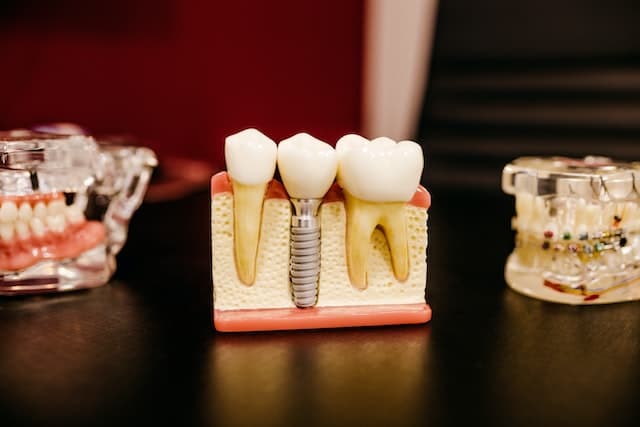Blog - Washington, DC
Tips, Facts, And The
Latest In Dentistry

Common Factors That Can Limit the Success of Dental Implants
Posted in Dental Implants
Posted on August 25, 2022 by Dr. Gerald Marlin

Multiple factors related to dental implant treatment can impact their success rate among patients, with the national average being around 80-90% [1].
However, at Elite Prosthetic Dentistry, we have a dental implant success rate of 97% or greater over a period greater than 20 years, due in part to our high-precision placement process, advanced dental imaging software, and disciplined treatment regimen.
While our implant failure rates remain extraordinarily low, there are a few common factors that can limit the success of dental implants, whether through slow healing or a failed implant. The following are some of the primary factors that can impact how successful a dental implant is.
Bone Volume and Quality
It’s imperative to have enough bone volume in your jaw for proper implant placement. Poor bone quality and lack of bone volume are two of the top reasons that dental implants fail [2].
When you lose a tooth, your body will naturally get rid of the bone that held the tooth in place over time. This bone loss is part of the reason why replacing a missing tooth with an implant as soon as possible is crucial to maintaining the integrity of your bone and, ultimately, to the success of your restoration.
A bone graft may be an option to help restore lost bone volume and enhance the quality of your bone for a successful dental implant placement.
Smoking or Chewing Tobacco
The failure rate of dental implants for patients who smoke or chew tobacco is much higher than for those who don’t. Research shows that 15.8% of implants failed in smokers, compared to just 1.4% of implants in non-smokers [3].
Not only do patients who smoke have a greater chance of infection after the surgery, but they also tend to heal more slowly. In addition, smoking and tobacco use can also affect the bone and tissue surrounding the implant, which may cause bone loss despite a bone graft or proper implant placement.
Smoking and tobacco use also increases the risk of periodontal disease, which can affect the quality of bone and the gum tissue around the implant, causing a higher risk of failure.
The Size and Location of the Implant
Having the proper size and placement for a dental implant is another crucial factor in its success. Dental implants can be placed virtually anywhere a tooth has been lost, but they must be the correct size and location and be precisely placed to ensure the best chance of success.
Generally, the longer or wider a dental implant is, the higher chance it has to fail if there is not enough bone around it to preserve the circulation [4]. However, placement matters more than the size.
An appropriately sized dental implant that is precisely placed in the jaw has the best chance of healing, which is why it’s imperative to work with an experienced prosthodontist who uses advanced imaging techniques for your dental implant placement.
Having a History of Gum Disease
If you have a history of gum disease, you may have a higher rate of failure for dental implants [5]. Before considering dental implants, you will need to have your gum disease treated and resolved. At Elite, with our rigorous treatment protocol, we have been able to perform highly successful implant therapy, in spite of previous periodontal break down.
Dr. Marlin and Dr. Talmazov will review your oral health history and conduct a comprehensive exam to determine if you are a candidate for dental implants. Based on their findings, which either one will discuss with you in detail, you can decide if dental implants are the right decision for your tooth restoration process.
Ensure Your Best Chance for Dental Implant Success
Elite Prosthetic Dentistry offers you the best chance for dental implant success because of our Precision Implant Placement, in-house custom-crafted crowns, and CT scans to ensure your implant is placed in the best position for healing and continued function. Find out if you are a candidate for dental implants by contacting us today.
Sources:
- https://www.ncbi.nlm.nih.gov/pmc/articles/PMC3872851/
- https://pubmed.ncbi.nlm.nih.gov/28319206/
- https://jada.ada.org/article/S0002-8177(14)62322-9/fulltext
- https://www.ncbi.nlm.nih.gov/pmc/articles/PMC5774056/
- https://pubmed.ncbi.nlm.nih.gov/28338030/

Through this commitment, Dr. Marlin provides his patients with long-lasting (35 years vs. the national average of 7-10 years) aesthetic restorations so that they have virtually no future problems.
As such, he is a leading specialist in dental implants, cosmetic dentistry, sedation dentistry , and restorative dentistry in the Bethesda–Chevy Chase, Northern Virginia, and Washington DC Metro Area. He has inserted and restored over 3,600 dental implants.





